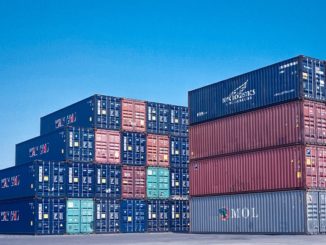
Published in El Pais, 4 April 2020 and in Los Tiempos 5 April 2020.
In a “complex or messy problem” like that of Coronavirus, any solution taken will be partially inadequate because it will surely harm many other sectors of the economy. We see these damages in the national and world economy. On the other hand, the immediate decision to opt for a quarantine shows that governments have tried to avoid contagion to the general population for the greatest benefit. Now it is up to the population to become aware that staying home is the only way to avoid the disease until a cure is found, or contagion is halted. But is this easy for developing countries?
In many countries in Latin America or Africa, there are many challenges to successfully emerge from this pandemic without large numbers of deaths. In many of these countries, quarantine was taken before seeing many cases of COVID-19 and they are trying to adopt suggestions from the World Health Organization (WHO) to avoid contagion. These measures revolve around hygiene and security measures, both for health centers and for the population. It is precisely these measures that expose the difficulties in these countries.
- Washing hands and drink enough liquid: According to the World Bank, in the poorest countries, an average of 16% of the population does not have access to safe drinking water; and 40% does not have access to basic sanitation facilities, with an average 15% practicing open defecation. In cities the latter is much lower, but the impact is greater due to the high density.
- Disposable masks, gloves, glasses, caps, suits and alcohol for health personnel: In April 2019, the WHO indicated that, globally, 1 in 4 health centers lacks safe water, sanitary services with implements (water, cleaning, alcohol, soap, toilet paper). In many countries, health personnel do not have safety clothing.
- Follow science-based information: The internet has caused most false information to be disseminated, lack of a habit of reading and searching for correct information causes people to spread rumors that harm treatment.
- Avoid spreading to at-risk people such as overweight and smokers: It has been indicated that COVID-19 can have devastating effects on overweight people or smokers. According to WHO data: a) 58% in Latin America and 41% in Africa are overweight or obese; b) 18% in Latin America and 15% Africa are daily smokers.
- Stay at home: a) Education: Many countries are not ready for an online education. In Bolivia, for example, the Ministry of Education has banned virtual classes because the free platforms have collapsed and because students were forced to buy megabytes, thus demonstrating the lack of preparation to educate, the high cost of the internet, which all will reduce the right of education during this crisis; b) Teleworking: According to ILO data in 2018, on average, 50% of the economy in Latin America and 86% in Africa is informal. Many of these activities turn around trading or manual labor. This means that means of existence depend largely on daily income, they do not have vacation rights and no salary if they do not work. Therefore, the population will turn desperate to go back to work and without respecting quarantine.
Many think they are on the right side (middle or high class). However, due to the quarantine, if people do not stay at home, travel by public transport, or are in crowded places, they may also contract the disease and be subject to the health system and its deficiencies. Specially with this disease that is unknown to the entire world. Perhaps this stage is an incentive to increase the available funds for the health system so that it becomes equal and of better quality for the entire population. It can already be seen that the consequences benefit or harm everyone.



Be the first to comment